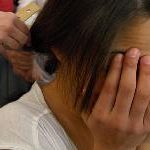Bulimia
Articles, Videos and treatment options for Bulimia
Bulimia Nervosa, also known simply as bulimia, is an eating disorder characterized by recurrent episodes of binge eating (bingeing) as well as a compensatory behavior intended to prevent excessive weight gain. According to the National Institutes of Mental Health (NIMH), 0.6% of the U.S. population will be affected by Bulimia during their lifetime.
You can read our overview of bulimia here, or scroll down to browse the latest articles and videos.

Bulimia nervosa, also referred to as bulimia, is one of three common eating disorders that cause serious problems for people who suffer from them. According to the National Institutes of Mental Health, the average age of onset for bulimia is 20 years old with more females being affected than males. If you suspect that a …
Read More

The ideal situation is to mention ahead of time to your physician that you are concerned about bulimia. This allows your doctor to review the subject and your records with an eating disorder in mind. They may even ask you to get some lab work done before the appointment, but in any case, the doctor …
Read More

According to the National Institutes of Health, bulimia is characterized by binge-purge symptoms that occur at least twice a day for three months. Behaviors of Bulimia To identify signs of bulimia in teens, it’s important to look for the consistent presence of some or all of the following behaviors: Overeating. A hallmark sign of bulimia …
Read More

Those in recovery from bulimia may quickly find that eating “normally” again is a constant struggle. Identifying “safe” foods – those that won’t trigger binge or purge behavior – can take time, and there isn’t an exact science to the process. The best prevention against relapse is an individualized plan that focuses on nutrition, behavioral …
Read More

Bulimia is a behavioral disease, and supporting a child or a loved one can mean the difference between a successful treatment and a disappointing failure. There are several recommendations you can follow to provide that critical support. View the disorder as a medical condition Start by making the subject as non-controversial and unemotional as possible. …
Read More

Eating disorders are not only a challenge for the patient, but they can also be difficult for friends and family members to cope with as well. In order to be a friend to a bulimic, it’s important to educate yourself about the disease and to learn how to give healthy, positive support to the person …
Read More

There are two main ways that bulimia causes hair loss. The first is shared with anorexia and comes when bulimics lose the proper nutrition needed to support healthy hair growth. New hair requires resources the body can use elsewhere when nutrition is lacking. This first type of hair loss is gradual and shows up as …
Read More

In a world where modern medicine is all around us, it sounds strange to ask where to get help for bulimia. But this condition comes with some real social stigma. It survives and thrives when concealed and those suffering from it often try to keep things secret. The Internet Advantages: A wealth of information and …
Read More

Finding help for someone with bulimia can seem like a daunting task. You may not know where to start or who to talk to, but there are plenty of resources available which can provide you with the information you need. Become familiar with both national and local organizations that may be useful for your loved …
Read More

The idea of a cure for bulimia isn’t popular in treatment circles. The reason is because it’s a behavioral issue linked to psychology. We can’t go in and tweak the brain to alter someone’s innate propensity to purge. It’s not like an infection where, once the bacteria are gone, someone is cured. Bulimia can reoccur …
Read More
 Eating Disorder Self Test. Take the EAT-26 self test to see if you might have eating disorder symptoms that might require professional evaluation. All answers are confidential.
Eating Disorder Self Test. Take the EAT-26 self test to see if you might have eating disorder symptoms that might require professional evaluation. All answers are confidential.
Find a Treatment Facility Near You
Click on a state below to find eating disorder treatment options that could be right for you.










 Eating Disorder Self Test. Take the EAT-26 self test to see if you might have eating disorder symptoms that might require professional evaluation. All answers are confidential.
Eating Disorder Self Test. Take the EAT-26 self test to see if you might have eating disorder symptoms that might require professional evaluation. All answers are confidential.